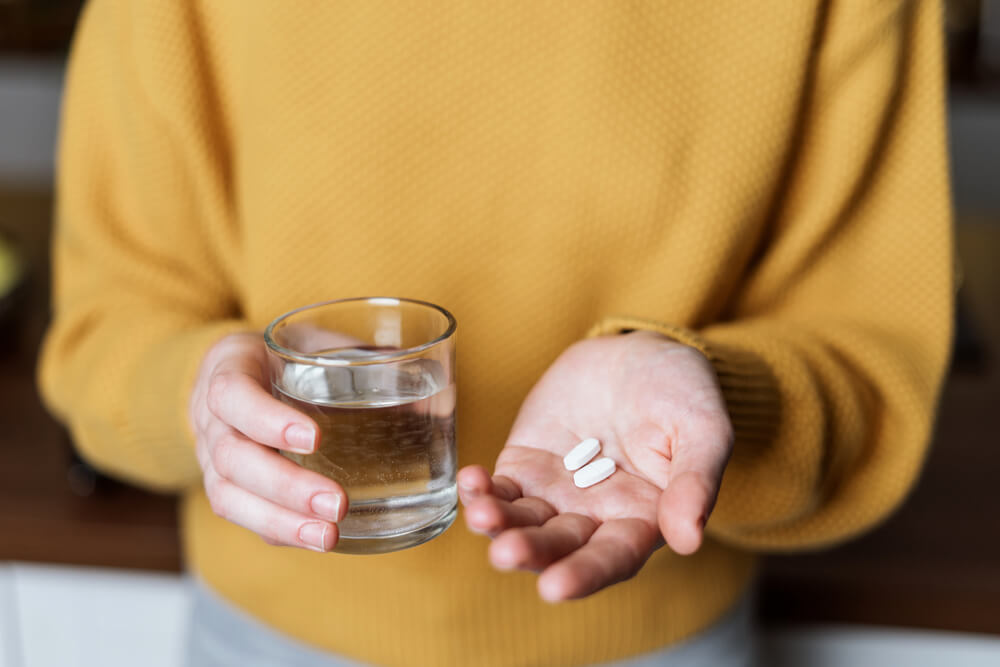The gut plays an important role in maintaining a healthy immune system, and Akkermansia may be one of the keys to keeping the gut healthy. Akkermansia, or Akkermansia muciniphila, was only discovered in 2004 and has been getting a lot of attention ever since. (11) Keep reading to learn about its unique characteristics as a probiotic.
What Is Akkermansia Muciniphila?
Akkermansia is one of the top 20 most common microbial species existing in the human gut microbiome (the community of microorganisms that live in the gut). It lives in the layer of mucus that lines the gut. This mucus layer plays an important role in protecting the intestinal epithelial cells (layer of cells that lines the internal surface of the intestine (7). The mucus layer also provides energy for the microorganisms that support immune system function to grow. (11)
Start recommending Akkermansia supplements from healthcare’s best wellness catalog
Get started for free
Akkermansia essentially feeds on the gut mucus layer, generating short-chain fatty acids which stimulate the production of more mucus. This means that the gut barrier is constantly replenishing with fresh mucus to maintain its function. (3)

Akkermansia benefits
A group of studies found that having lower levels of Akkermansia is associated with the development of certain metabolic and inflammatory diseases, such as:
- Atopy (the predisposition to develop allergic diseases such as allergies, asthma, and eczema)
- Autism
- Inflammatory bowel diseases (IBD), including Crohn’s disease and ulcerative colitis
- Obesity
- Type 2 diabetes (11)(4)
Specifically, Akkermansia was found to improve blood sugar, gut inflammation, and insulin sensitivity. If insulin sensitivity is low, the body can become resistant to insulin, leading to certain diseases, including diabetes. This means that Akkermansia may be beneficial for addressing obesity and diabetes. (11)(4)(1)
Early studies also show that it may be helpful in cancer treatment, alongside traditional cancer therapy, though more research is needed. (11)
How to Boost Akkermansia Levels
There are several ways to ensure a healthy level of Akkermansia in the gut, from fasting to supplementation. If you’re a patient, make sure to check with your healthcare provider to see which method is right for you.
Fasting
Several studies show a significant increase in Akkermansia levels in the gut after a period of intermittent fasting. (10)(9) Both alternate-day fasting (where you fast every other day) and time-restricted eating (where you eat within a certain time window) showed successful results in increasing Akkermansia levels. This had a positive overall effect on gut microbiota levels (the community of microorganisms living in the gut). The gut microbiota contributes to metabolic health by improving insulin sensitivity and increasing metabolism (the production of energy from food sources in the body), which prevents weight gain. (9)
One study measuring the effects of calorie restriction on metabolic health and obesity found that people with higher levels of Akkermansia at the beginning of the study had better results in weight loss by the end. This was measured after six weeks of maintaining a calorie restricted diet enriched with fibers and protein, followed by six weeks of a weight stabilization diet. They also showed an improvement in blood sugar levels. (5)
These studies suggest that fasting may not only help increase Akkermansia levels in the gut but that higher levels may also enhance the benefits of fasting.

Supplementation
There are several different types of supplements that can all increase Akkermansia levels:
1. Akkermansia Muciniphila Probiotic
While more research in humans is needed, several animal studies have shown that taking an Akkermansia muciniphila supplement can increase Akkermansia levels in the gut which are often depleted by a high-fat Western diet. (12)
2. Cranberry Extract
In addition to supplementing with Akkermansia directly, several studies have found that polyphenol-rich supplements such as cranberry extract can also increase Akkermansia levels in the gut. (2)(8) This is because polyphenols directly stimulate the growth of beneficial gut bacteria. (3)
3. Green Tea Extract
Green tea extract was also found to significantly encourage Akkermansia growth due to the large amount of bioactive ingredients it contains, which can be metabolized by microorganisms like Akkermansia. (6)
The Bottom Line: Akkermansia Plays a Vital Role in Maintaining a Healthy Gut
Maintaining a healthy gut barrier function can strengthen the immune system and prevent metabolic disorders like obesity and type 2 diabetes. Akkermansia muciniphila plays a vital role in this process, so if your patients are experiencing any metabolic disorders, it may be an effective therapeutic option. If you’re a patient, make sure to talk to your healthcare provider about increasing your Akkermansia levels.
Start recommending Akkermansia supplements from healthcare’s best wellness catalog
Get started for free
- Abuqwider, J. N., Mauriello, G., & Altamimi, M. (2021). Akkermansia muciniphila, a New Generation of Beneficial Microbiota in Modulating Obesity: A Systematic Review. Microorganisms, 9(5), 1098.
- Anhê, F. F., Roy, D., Pilon, G., Dudonné, S., Matamoros, S., Varin, T. V., Garofalo, C., Moine, Q., Desjardins, Y., Levy, E., & Marette, A. (2014). A polyphenol-rich cranberry extract protects from diet-induced obesity, insulin resistance and intestinal inflammation in association with increased Akkermansia spp. population in the gut microbiota of mice. Gut, 64(6), 872–883.
- Anonye, B. O. (2017). Commentary: Dietary Polyphenols Promote Growth of the Gut Bacterium Akkermansia muciniphila and Attenuate High-Fat Diet-Induced Metabolic Syndrome. Frontiers in Immunology, 8.
- Bu, F., Zhang, S., Duan, Z., Ding, Y., Chen, T., Wang, R., Feng, Z., Shi, G., Zhou, J., & Chen, Y. (2020). A critical review on the relationship of herbal medicine, Akkermansia muciniphila, and human health. Biomedicine & Pharmacotherapy, 128, 110352.
- Dao, M. C., Everard, A., Aron-Wisnewsky, J., Sokolovska, N., Prifti, E., Verger, E. O., Kayser, B. D., Levenez, F., Chilloux, J., Hoyles, L., Dumas, M. E., Rizkalla, S. W., Doré, J., Cani, P. D., & Clément, K. (2015). Akkermansia muciniphila and improved metabolic health during a dietary intervention in obesity: relationship with gut microbiome richness and ecology. Gut, 65(3), 426–436.
- Jeong, H. W., Kim, J. K., Kim, A. Y., Cho, D., Lee, J. H., Choi, J. K., Park, M., & Kim, W. (2020). Green Tea Encourages Growth of Akkermansia muciniphila. Journal of Medicinal Food, 23(8), 841–851.
- Kong, S., Zhang, Y., & Zhang, W. (2018). Regulation of Intestinal Epithelial Cells Properties and Functions by Amino Acids. BioMed Research International, 2018, 1–10.
- Neto, C. C., Mortzfeld, B. M., Turbitt, J. R., Bhattarai, S. K., Yeliseyev, V., DiBenedetto, N., Bry, L., & Bucci, V. (2021). Proanthocyanidin-enriched cranberry extract induces resilient bacterial community dynamics in a gnotobiotic mouse model. Microbial Cell, 8(6), 131–142.
- Pinto, F. C. S., Silva, A. A. M., & Souza, S. L. (2022). Repercussions of intermittent fasting on the intestinal microbiota community and body composition: a systematic review. Nutrition Reviews, 80(3), 613–628.
- Stanislawski, M. A., Frank, D. N., Borengasser, S. J., Ostendorf, D. M., Ir, D., Jambal, P., Bing, K., Wayland, L., Siebert, J. C., Bessesen, D. H., MacLean, P. S., Melanson, E. L., & Catenacci, V. A. (2021). The Gut Microbiota during a Behavioral Weight Loss Intervention. Nutrients, 13(9), 3248.
- Zhang, T., Li, Q., Cheng, L., Buch, H., & Zhang, F. (2019). Akkermansia muciniphila is a promising probiotic. Microbial Biotechnology, 12(6), 1109–1125.
- Zhou, K. (2017). Strategies to promote abundance of Akkermansia muciniphila, an emerging probiotics in the gut, evidence from dietary intervention studies. Journal of Functional Foods, 33, 194–201.





